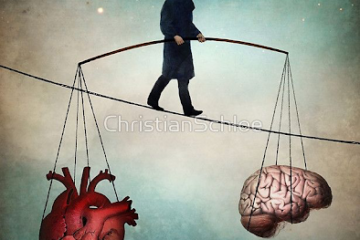
Writing is nothing if not breaking the silence. Betsy Lerner
There is a great wall of pretense that can surround the artistic enterprise. Given modernism’s glorification of the creative act and the progenitor as genius, many in our current time struggle with the immensity of value and notoriety placed upon art making.
The desire for one’s creativity to “make a difference” on whatever level can foster an unspoken sense of impotence as one enters into the creative process. As a poet, who often speaks confessionally, I am continually amazed at the multiple characters resident in my subconscious narrative flow. On any morning as I prepare for the act of writing, the \ can rear his ugly head and begin to claim primary status over my heart.
Knowing of my own brokenness all to well, (if we claim to be without sin, we deceive ourselves and the truth is not in us I John 1:8 NIV) I can easily fall into a state of morbid introspection versus contemplative seeing. Brennan Manning is a gift to the artistic community. In his powerful book Abba’s Child, Manning clearly reveals the terrain of the soul that either exalts itself in grandiosity and minor vanities or plummets headlong into the abyss of self-recrimination. Thomas Merton as well, pondered in his work over the tone and false selves that animate our personalities and personas. Both men reveal the subtle imbalance of the soul that remains stuck in the shadow be it of light or darkness, living one’s life solely for the acclaim of others. The life of pretense is highly dangerous for the artist for we all love the attention and accolades offered to those in the arts. Whether performing, writing, painting, or designing, it is the nature of our ego to take note of all within the sphere of our reputation. For artists who choose to offer their art making as “gift,” seeing through this pretense is essential.
Ironically, some may regard the imposter energy and presence as something to be ignored or sequestered. Spiritual direction would engage the shadow as an act of prayerful devotional attention. Who is this person and where are these voices coming from? Why are they speaking now and what truths do they reveal and simultaneously hide? Manning encourages us to engage the imposter when he says…” The vivisection of the imposter’s anatomy appears to be a masochistic exercise in self-flagellation. Isn’t such morbid introspection self-defeating? Is it really necessary? I maintain that it is not only necessary but indispensible for spiritual growth. The imposter must be called out of hiding, accepted, and embraced. He is an integral part of my total self. Whatever is denied cannot be healed. To acknowledge humbly that I often inhabit an unreal world, that I have trivialized my relationship with God, and that I am driven by vain ambition is the first blow to dismantling my glittering image. The honesty and willingness to stare down the fake self dynamites the steel trapdoor of self deception.” (Page 43 Ababa’s Child)
One of the reasons we often bemoan the state of art in Evangelical circles is due to the denial of one’s deep complicity with evil in the world. Moralism usually is fueled with an obsessive regard for someone else’s sin, evil, or moral lack. For novelists to pen true stories, for poets to reveal the depth of the human experience, for songwriters to touch the primal recesses of the soul, a healthy disregard for our supposed “goodness” is essential. Manning adds, “Hatred of the imposter is actually self-hatred…he goes on “accepting the realty of our sinfulness means accepting our authentic self.”
The acceptance of oneself is the essence of the whole moral problem, the epitome of a whole outlook on life. That I feed the hungry, that I forgive an insult, that I love my enemy in the name of Christ – all these are undoubtedly great virtues. What I do unto the least of my brethren that I do unto Christ. But what if I should discover that the least amongst them all, the poorest of al the beggars, the most impudent of all offenders, the very enemy himself – that these are within me, and that I myself stand in need of the alms of my own kindness – that I myself am the enemy who must be loved – what then? As a rule, the Christian attitude is then reversed; there is no longer any question of love or long suffering; we say to the brother within us, “RACA” and condemn and rage against ourselves. We hide it from the world and we refuse to admit ever having met the least among the lowly ourselves. C.J. Jung Modern Man in Search of Self
How does all this inner ruminating accompany the creative process you might ask? By preparing the heart to see, the hand to serve, and the soul to listen. Persistent avoidance of our true estate leads to narcissism and draws real life away from the creative process. Simultaneously, regarding our inner state with disdain robs us of nobility of soul denying God’s immanence to be present in our creative acts. While pride pulls us towards exaltation and adulation, self-judgment as being unworthy of breath running through our being is also a lie. We are inordinately exquisite.
Define yourself radically as one beloved of God
John Egan A Traveler Towards Dawn
The ordinary self is the extraordinary self- the inconspicuous nobody who shivers in the cold of winter and sweats in the heat of summer, who wakes up unreconciled to the new day, who sits before a stake of pancakes, weaves through traffic, bangs around the basement, shops in the supermarket, pulls weeds and rakes up the leaves, makes love and snow balls, flies kites and listens to the sound of rain on the roof. While the imposter draws his identity from past achievements and the adulation of others, the true self claims identity in its belovedness. We encounter God in the ordinariness of life: not in the search for spiritual highs and extraordinary mystical experiences but in our simple presence in life Brennan Manning
Adjusting the soul to its rightful place in the heart of God is a lifelong encounter, and engagement, progressive and ongoing. Oh that we could remain in a posture of belonging all the time. But of course, the human experience can be overwhelming and powerful in its ability to rob us of this truth and take us out of a felt sense of presence, our own, the Father’s and the created order – i.e. nature.



0 Comments